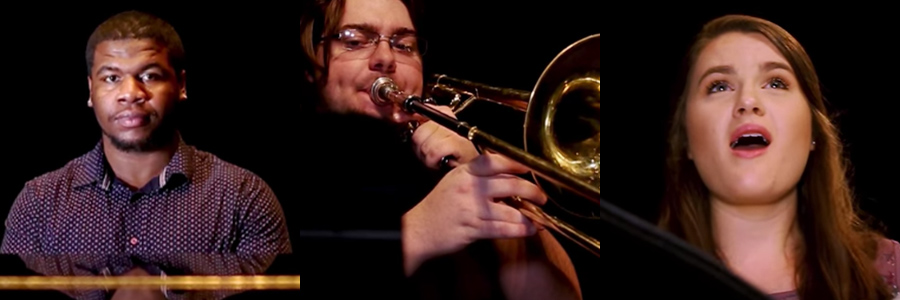Become a Music Minor

If you love music and want to be involved in more than a casual way, the minors in music could be a good fit for you. Regardless of your career aspirations, music can remain an important and enjoyable part of your life for decades to come.
The Department of Music offers three minors:
- Collaborative Music - designed for students involved in band, choir, or orchestra
- Music Composition - intended for people who wish to write music
- Music Performance - intended for people who would like to pursue musical performance or further their study of an instrument or voice
What classes will I take?
Please see the UTC Course Catalogs on the University Registrar site for more details:
- Collaborative Music - includes 21 credit hours
- Music Composition - includes 24 credit hours
- Music Performance - includes 21 credit hours
Become a Music Minor
Step 1
Contact the Department of Music to set up a time to talk with a Music advisor about your musical background and interests, and to help you to plan how to incorporate the Music courses into your schedule. You may also communicate via email by contacting the appropriate advisor: Dr. Lee Harris ([email protected]) for Music Performance and Collaborative Music minors; Dr. Jonathan McNair ([email protected]) for Music Composition minors.
Step 2
After meeting with the Music minor advisor and reviewing your course of study, if applied studies are indicated, you are required to complete an audition for the Department of Music on one of the following 2023-2024 dates: February 24 or March 23.
Step 3
Review the audition requirements and prepare your audition material. This audition will determine your readiness for college-level instrument or voice instruction and place you at the proper level of study.
Questions?
If you have questions about any step of this process, please contact Jordan Hicks, First Year Coordinator, or the Department of Music by phone at (423) 425-4601, or by email at [email protected].